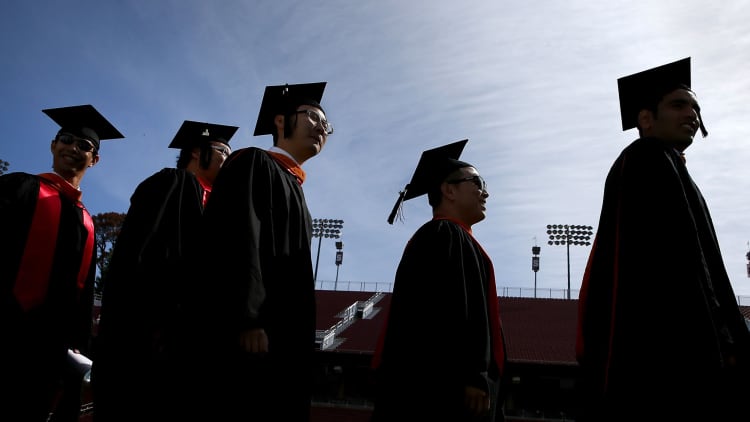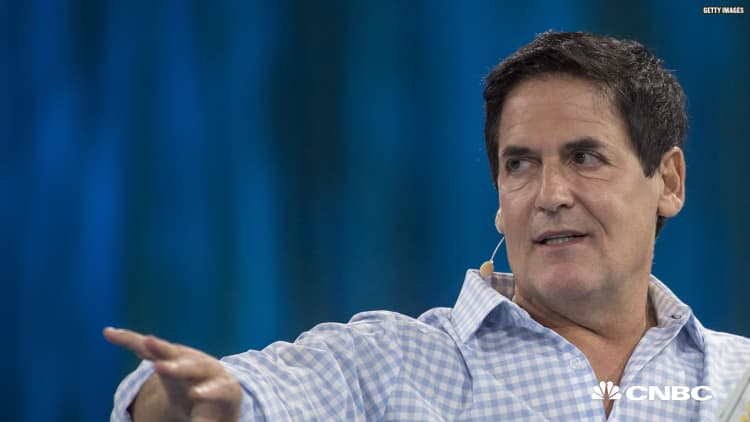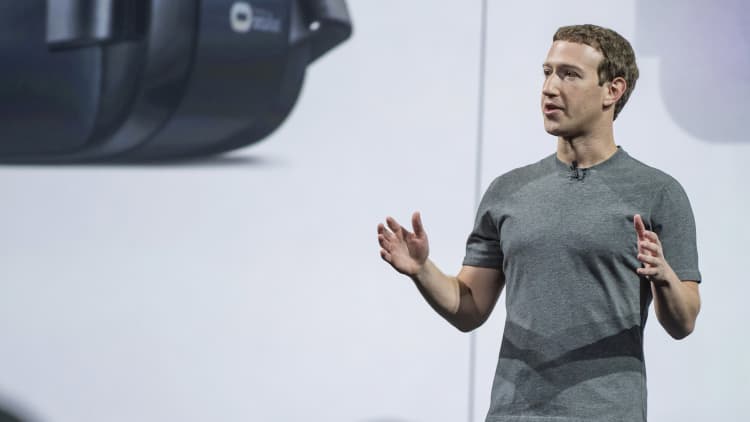Everyone remembers their class valedictorian: perfect grades, perfect test scores and in some cases, perfect hair. They probably went on to professional fame and enormous wealth, right?
Not necessarily.
In his new book "Barking Up the Wrong Tree," Eric Barker explores the maxims we use to discuss success. He finds that, just as nice guys don't always finish last, valedictorians rarely become stand-out successes.
"[Valedictorians] do well," Barker told CNBC, "but they don't actually become billionaires or the people who change the world."
His assessments are based on research by Karen Arnold, a professor at Boston College and the author of "Lives of Promise: What Becomes of High School Valedictorians." She tracked 81 high school valedictorians and salutatorians after graduation.
Barker writes:
There was little debate that high school success predicted college success. Nearly 90 percent are now in professional careers with 40 percent in the highest tier jobs. They are reliable, consistent and well-adjusted, and by all measures the majority have good lives.
But how many of these number-one high school performers go on to change the world, run the world or impress the world?
The answer seems to be clear: zero.
It seems that the traits that set one up for exceptional success in high school and college — "self-discipline, conscientiousness and the ability to comply with rules" — are not the same traits that lead individuals to start disruptive companies or make shocking breakthroughs.
"Valedictorians aren't likely to be the future's visionaries," says Arnold. "They typically settle into the system instead of shaking it up."

Many valedictorians themselves believe that they weren't the smartest student in their class but rather simply the hardest worker. Others confessed a strong preference for giving their teachers what they seemed to want, as opposed to truly absorbing the material.
In fact, Arnold's research demonstrates that students who truly enjoy learning the most often struggle in school, where students must balance attention given to subjects about which they're truly passionate with the demands of their other coursework. While intellectual students struggle with this tension, valedictorians excel.
But, after graduation, that drive only gets them so far.
Meanwhile, lots of mediocre students thrive outside a scholastic environment. A survey of over 700 American millionaires found that their average college GPA was 2.9. "College grades," Barker writes, "aren't any more predictive of subsequent life success than rolling dice."
"School has very clear rules," Barker says, "but life doesn't. Life is messy."
Don't miss: 6 science-backed ways to get ahead







